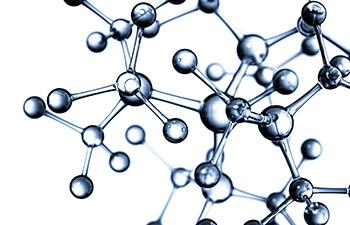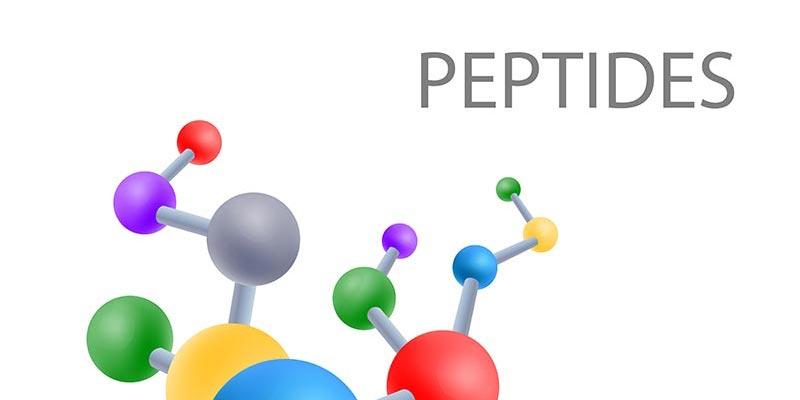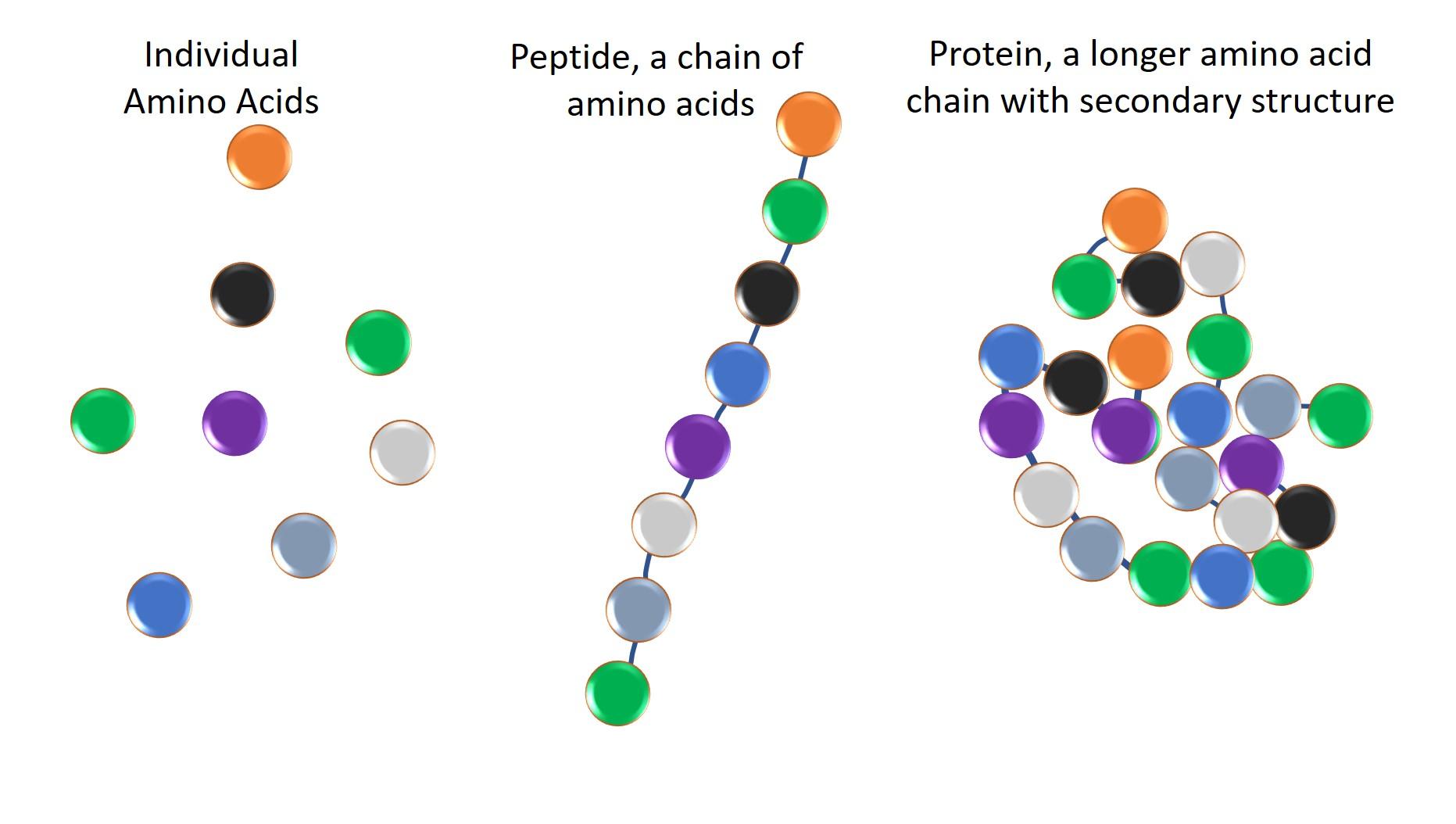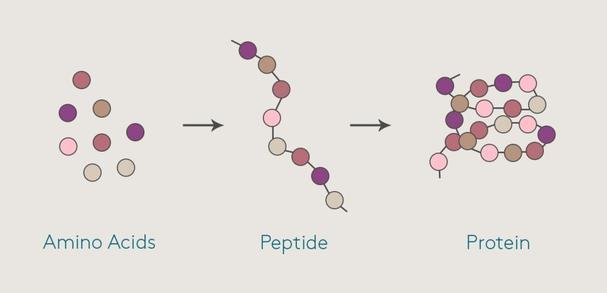As the years pass, many men discover that the vitality of their youth can feel like a distant memory, especially when it comes to maintaining muscle mass and strength. Enter peptides—a burgeoning topic in the realm of health and fitness that promises to enhance muscle growth and recovery, particularly for men over 40. These small but powerful chains of amino acids have garnered attention for their potential to revive and rejuvenate the aging body. In this article, we’ll delve into the fascinating world of peptides, exploring how they work, their benefits for muscle growth, and what men in their forties and beyond should know when considering them as a supplement in their fitness journey. Whether you’re looking to regain lost muscle, improve your workout results, or simply enhance your overall well-being, understanding the role of peptides could be your key to unlocking a stronger, healthier self.
Exploring the Science of Peptides and Muscle Growth in Aging Men
The landscape of muscle growth has evolved significantly, particularly for men over 40. Peptides, which are short chains of amino acids, have emerged as a pivotal area of research, demonstrating promising effects on muscle synthesis and recovery. Certain peptides, such as Growth Hormone Releasing Hormones (GHRH) and Insulin-like Growth Factor 1 (IGF-1), activate the body’s natural growth hormone pathways. This not only supports muscle hypertrophy but also enhances the recovery process, making it easier for aging men to maintain and build muscle. As the body’s natural hormone production declines with age, these peptides serve as a scientific intervention targeting muscle loss often associated with aging.
Moreover, combining peptide therapy with a comprehensive exercise regimen can amplify benefits for those in their forties and beyond. Consistent resistance training, paired with peptide supplementation, can lead to notable improvements in muscle mass and metabolic health. Key advantages include:
- Increased Muscle Strength: Targeted peptide therapy can foster significant strength gains.
- Improved Recovery Times: Reduces downtime between workouts, facilitating more frequent and effective training sessions.
- Enhanced Fat Loss: Peptides can support body composition changes by promoting fat oxidation.
| Peptide | Primary Benefit |
|---|---|
| GHRH | Stimulates growth hormone release |
| IGF-1 | Promotes muscle growth and repair |
| TB-500 | Encourages faster muscle recovery |

Key Peptides That Enhance Muscle Mass and Recovery
Among the various peptides that have gained attention for their potential to boost muscle mass and enhance recovery, Growth Hormone Releasing Peptides (GHRPs) stand out prominently. These peptides stimulate the release of growth hormone, leading to increased muscle protein synthesis, which is crucial for building lean muscle mass. Additionally, GHRPs can accelerate recovery post-workout by reducing muscle soreness and improving overall physical performance. Examples include GHRP-6 and Ghrelin, which have shown promising results in promoting endurance and strength, especially beneficial for men over 40 aiming to maintain an active lifestyle.
Another noteworthy class of peptides is Insulin-like Growth Factor 1 (IGF-1), known for its role in muscle hypertrophy and repair. IGF-1 works synergistically with growth hormone to promote anabolic processes in the body, thus enhancing muscle recovery after intense workouts. Furthermore, there’s growing interest in BPC-157, often recognized for its regenerative properties. This peptide is believed to speed up healing of injured muscles, tendons, and ligaments, making it a valuable addition for anyone looking to recover faster from physical exertion. Together, these peptides represent a powerful arsenal for men over 40 seeking to optimize their muscle growth and recovery strategies.

Understanding the Role of Hormones in Aging and Muscle Development
As men age, the balance of hormones such as testosterone, growth hormone, and insulin-like growth factor often shifts, impacting both overall health and muscle development. Testosterone, for instance, is crucial for maintaining muscle mass and strength. Levels typically begin to decrease after the age of 30, making it more challenging for older men to build muscle. Additionally, growth hormone plays a key role in tissue growth and regeneration. The decline of these hormones contributes to the gradual loss of muscle, known as sarcopenia, and can inhibit the body’s ability to recover from physical strain.
Incorporating peptides into your regimen may offer a solution to combat these hormonal shifts. Peptides such as growth hormone-releasing peptides (GHRPs) are designed to stimulate the pituitary gland to secrete more growth hormone, which can help enhance muscle growth and improve recovery time. Other beneficial peptides include CJC-1295 and Ipamorelin, which not only encourage muscle development but also support fat loss and overall vitality. These treatments demonstrate the powerful intersection of modern science and fitness, potentially reshaping the aging experience for men over 40.

Effective Dosage and Administration Guidelines for Peptide Use
For men over 40 seeking muscle growth through peptide supplementation, understanding the right dosage and administration is essential. Typically, starting with low doses can help gauge the body’s response. It is important to consider factors such as body weight, overall health, and specific goals. Recommended dosages may include:
- IGF-1 LR3: 20-40 mcg per day
- GHRP-6: 100-300 mcg, 2-3 times daily
- Melanotan II: 0.5-1 mg every other day
When it comes to administration, subcutaneous injections are often the preferred method, allowing for efficient absorption and reduced discomfort. It’s wise to rotate injection sites to minimize tissue irritation. Below are a few recommended administration tips:
- Clean the injection site with alcohol wipes to prevent infection.
- Inject slowly to reduce the risk of bruising.
- Store peptides correctly under refrigeration to maintain potency.
| Peptide | Administration Method | Frequency |
|---|---|---|
| IGF-1 LR3 | Subcutaneous injection | Daily |
| GHRP-6 | Subcutaneous injection | 2-3 times daily |
| Melanotan II | Subcutaneous injection | Every other day |
Balancing Nutrition and Peptide Therapy for Optimal Results
To achieve optimal results in muscle growth, particularly for men over 40, it is vital to harmonize nutrition with peptide therapy. While peptides enhance muscle recovery and growth, the body requires a balanced intake of essential nutrients to maximize the benefits. Focus on incorporating the following nutrient-dense foods into your diet:
- High-quality protein sources: Such as lean meats, fish, eggs, and plant-based options like legumes and quinoa.
- Healthy fats: Include avocados, nuts, seeds, and olive oil to support hormone production.
- Complex carbohydrates: Opt for whole grains, vegetables, and fruits to provide sustained energy for workouts.
Coupled with peptide therapy, this nutritional approach will contribute to muscle development and overall well-being. Additionally, timing your meals around your training sessions can enhance performance and recovery. Consider the following simple table for meal timing:
| Time | Meal Recommendation |
|---|---|
| Pre-Workout | Protein shake with fruit for energy |
| Post-Workout | Lean protein with complex carbs and vegetables |
By combining a targeted nutritional regimen with peptide therapy, men over 40 can unlock their body’s potential, resulting in enhanced muscle growth and improved vitality. Remember, consistency is key in both dietary choices and peptide use, leading to long-lasting results.
Safety Considerations and Potential Side Effects of Peptide Use
The use of peptides for muscle growth can be an enticing proposition, especially for men over 40 looking to enhance their physical performance. However, it is vital to approach peptide use with caution. Understanding the potential side effects is a critical step in safeguarding your health. Some common side effects include:
- Injection site reactions: Swelling, redness, or pain where the peptide is administered.
- Hormonal imbalances: Certain peptides may disrupt the endocrine system, leading to potential complications.
- Allergic reactions: Some individuals may experience hypersensitivity, resulting in rashes or breathing difficulties.
Furthermore, the long-term effects of peptide use remain largely under-researched, making it essential to consult with a healthcare professional before starting any regimen. To provide a clearer picture, the table below outlines the most commonly reported side effects:
| Side Effect | Frequency |
|---|---|
| Injection site pain | Common |
| Nausea | Occasional |
| Increased appetite | Some |
| Water retention | Rare |
Ultimately, while peptides offer promising benefits for muscle growth, weighing these risks against the potential rewards is essential for making informed decisions. A tailored approach, guided by qualified professionals, ensures that your journey into peptide use remains safe and effective.
Real-Life Success Stories: Men Over 40 Transforming Their Fitness with Peptides
Q&A
Q&A: Peptides for Muscle Growth in Men Over 40
Q: What are peptides and how do they work for muscle growth?
A: Peptides are short chains of amino acids that act as building blocks for proteins. They play a crucial role in signaling various biological processes in the body. When it comes to muscle growth, certain peptides can stimulate the release of growth hormone and enhance your body’s ability to regenerate and repair muscle tissue, making them particularly beneficial for men over 40 who may experience a natural decline in muscle mass and strength.
Q: Are all peptides created equal when it comes to muscle growth?
A: Not at all! There are various types of peptides, each with unique functions. Some of the most popular peptides for muscle growth include Growth Hormone-Releasing Hormones (GHRHs), such as Ipamorelin and CJC-1295, as well as insulin-like growth factor (IGF-1). Each one has different mechanisms of action and effects on muscle synthesis and recovery. It’s crucial to do your research and consult a healthcare professional before choosing a peptide regimen.
Q: Can men over 40 safely use peptides for muscle growth?
A: While many men in their 40s and beyond do find success using peptides, safety is paramount. Since peptides can affect hormone levels and bodily functions, it’s essential to undergo a thorough medical evaluation and consult with a healthcare provider who specializes in hormonal therapies. They can help assess individual risks, determine appropriate dosages, and monitor for any potential side effects.
Q: What are the potential benefits of using peptides for muscle growth in this age group?
A: For men over 40, the potential benefits of using peptides can be significant. These may include increased muscle mass, improved recovery times, enhanced strength and performance, better fat loss, and an overall boost in vitality. Peptides can also promote collagen production, which may benefit joint health—key for maintaining an active lifestyle.
Q: Are there any side effects of peptide use I should be aware of?
A: Like all supplements and therapies, peptides come with potential side effects. Some users may experience reactions at the injection site, changes in appetite, or headaches. More serious effects, albeit rarer, can include fluctuations in blood sugar levels and potential impacts on hormone regulation. Open communication with a healthcare provider is critical to mitigate risks and ensure safe use.
Q: How do I incorporate peptides into my training regime?
A: Incorporating peptides into your training routine begins with understanding your goals. Pairing peptides with a balanced diet and a well-structured exercise program—focused on resistance training and adequate recovery—can enhance their effectiveness. Many choose to take peptides on non-training days or post-workout to maximize recovery benefits. Again, guidance from a healthcare provider is essential to tailor the approach to your specific needs.
Q: What’s the bottom line for men over 40 considering peptides for muscle growth?
A: Peptides can offer promising avenues for muscle growth and overall health for men over 40, but they are not a magic solution. A holistic approach, including a healthy diet, regular exercise, and lifestyle adjustments, is essential for sustainable results. Always prioritize safety, do your homework, and work closely with healthcare professionals to explore this option effectively.
This Q&A serves as a comprehensive guide for anyone looking to understand the role of peptides in muscle growth, specifically tailored for men over 40 seeking to enhance their fitness journey.
Insights and Conclusions
the journey towards muscle growth in men over 40 is not merely a quest for aesthetics, but a commitment to overall health and vitality. Peptides present a promising path, unlocking the potential for enhanced muscle synthesis, recovery, and endurance. As our bodies evolve with age, so too must our approaches to fitness and well-being. By exploring peptides as a strategic tool in your regimen, you can harness the power of modern science to support your physical goals.
However, it is crucial to approach this journey with caution—seeking professional guidance and adhering to best practices will ensure a safe and effective experience. Remember, the key to success lies not only in the supplements we choose but in the dedication we apply to crafting a balanced lifestyle. Embrace this chapter of your life with purpose, and let the benefits of peptides propel you towards a stronger, healthier future. After all, age is just a number, and with the right strategies, the best may be yet to come.










